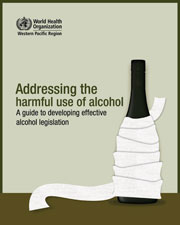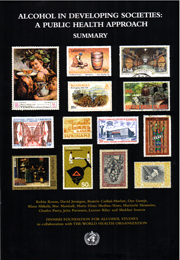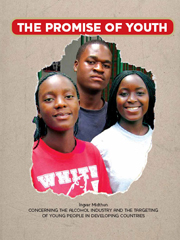
New Political Declaration and Action Plan for international drug control
At a high-level meeting of the UN Commission on Narcotic Drugs (CND) in Vienna last week a new Political Declaration and an Action Plan for international drug control were adopted. The documents call for intensified, as well as balanced and comprehensive action by governments world wide.
The purpose of the ten-days meeting of the CND, which is the policy-setting body of the United Nations in drug-policy matters, was to review progress in international drug control since the UN General Assembly on Drugs (UNGASS) in 1998. Over 1.400 participants from 130 countries, international organizations and NGOs took part in the sessions. At the final sessions also Heads of State and Ministers from all over the world came to a so-called high-level segment meeting, which finally adopted the Declaration and the Action Plan .
The Political Declaration can be downloaded here.
The Action Plan can be downloaded here.
A shared responsibility
According to a UNODC press release the Political Declaration recognizes that countries have a shared responsibility for solving the world drugs problem, that a "balanced and comprehensive approach" is called for and that human rights need to be recognized. Notably, it stresses health as the basis for international drugs policy. "The Declaration will be a valuable tool to spur national efforts and strengthen international cooperation," said the Chairperson of the session, Deputy Prime Minister of Namibia, Libertina Amathila.
The NGO network EURAD (Europe Against Drugs) welcomes the result of the UN meeting in a position paper, in particular the fact that the drug agenda in the UN now has become more comprehensive and balanced in terms of looking at social and health issues, organized crime as well as development and poverty issues.
No silver bullets available
EURAD points to the underlying message that no intervention can stand alone and that there needs to be a concerted effort. “There is no quick fix, no silver bullet. And second, the aims of international drug policy efforts are as always to keep people away from drugs and to make people drug free, and that the UN recognizes the important fact that citizens cannot be seen without its context of work, community, family, its social web. The aim of drug policies should therefore continue to be both freedom from addiction and the abuse of drugs as well as successful social integration and cohesion.
EURAD: Economic growth and stability
EURAD especially welcomes the emphasis on an integrated approach in stopping agricultural production of illicit drugs and in crop eradication. The success in reducing opium growth in the Golden Triangle was in large part due to economic growth and stability. Crop eradication cannot be seen in isolation from poverty and development issues”, says the EURAD paper, which can be downloaded here.
Six areas of Action
Governments also approved an Action Plan proposing 30 remedies to problems in six areas of concern, namely,
- Reducing drug abuse and dependence
- Reducing the illicit supply of drugs
- Control of precursors and of amphetamine-type stimulants
- International cooperation to eradicate the illicit cultivation of crops and to provide alternative development
- Countering money-laundering
- Judicial cooperation
The Action Plan places emphasis, among other things, on scientific evidence to support interventions; mainstreaming drug treatment and rehabilitation into national healthcare systems; and ensuring accessibility to drug demand reduction services.
The Action Plan addresses, for example, new trafficking trends and calls for greater exchange of intelligence, better monitoring of the impact of cyber-technology and effective regulation of online pharmacies. It also supports drug control and alternative development approaches as part of measures to alleviate poverty and promote sustainable development.
In his concluding remarks, Antonio Maria Costa, Executive Director of UNODC, thanked NGOs for "helping set the agenda beyond 2008". He also paid tribute "to all those people around the world who put this plan into action every day: the teachers, health and social workers, parents, police officers, mayors, mentors and members of civil society who - through their engagement and example - create a safer and healthier world."
![]()
![]()
Developed with CustomPublish CMS by Nettinfo AS




